COLLAGEN, an essential protein for our health, mobility and appearance
This highly resistant and flexible molecule forms the structure of all tissues in the body, which provide protection and allow us to stand up and move.
It constitutes 70% of the cartilages’ dry weight, 20% of the bones, 85% of the tendons, 70% of the ligaments, 75% of skin and 6% of muscles, besides being the main component of the connective tissue, which covers and protects all our internal vital organs.


Collagen molecule
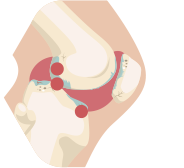 Joint pain
Joint pain
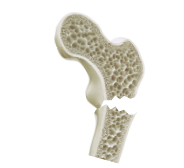 Mass loss and bone decalcification producing fractures
Mass loss and bone decalcification producing fractures
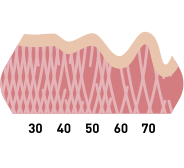
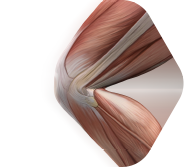
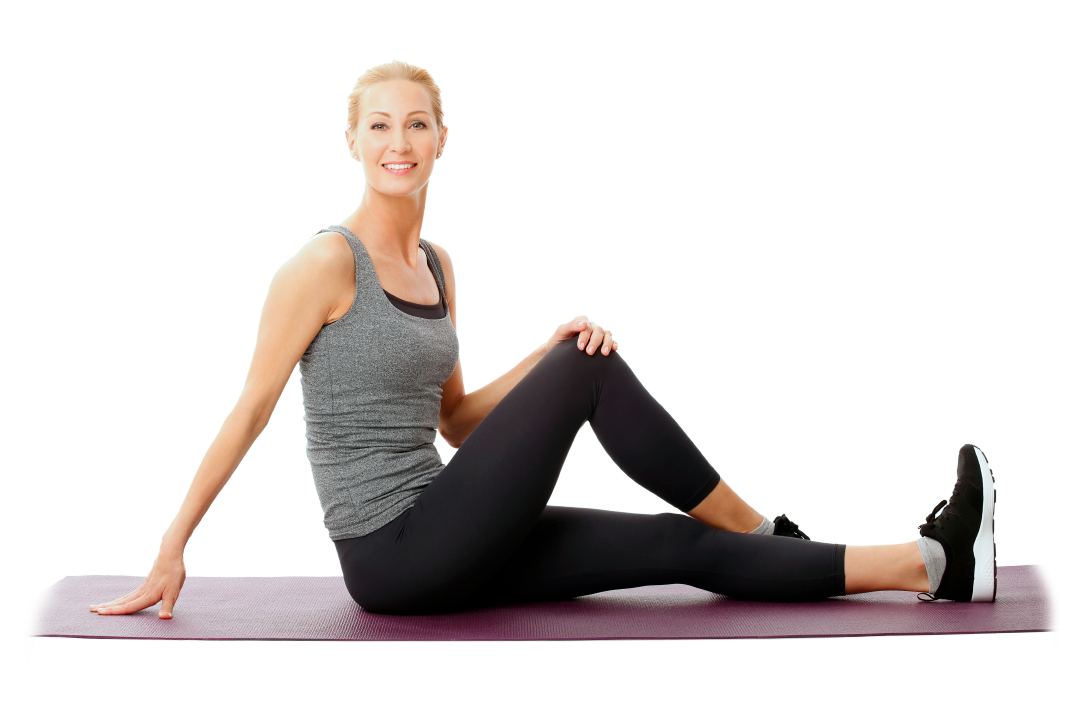
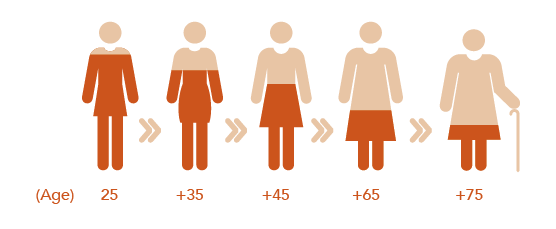
As time goes by, our collagen production is reduced and it gets deteriorated. From the age of 25 years old, we lose every year about 1.5% of this protein. Besides, intense physical exercise, as well as menopause or overweight, speeds up this process.
Collagen is, exclusively, an animal protein. Found in animal tissues (native collagen), it is a very long and complex molecule, which cannot be used as a nutrient because our digestive system cannot digest it and, therefore, it cannot take advantage of it.
Collagen needs to become digestible and assimilable. For that, it is necessary to go through two processes:
Gelatinisation: Unroll of the triple-helix collagen molecule. This process, in which gelatine is obtained, usually takes place by chemical processes (alkali or powerful acids). However, for the manufacture of COLPROPUR D®, we only apply a physical treatment (heat).
Hydrolysis: Fragmentation of long collagen polypeptide chains (gelatine) in peptides (short chains) using enzymes like the ones in the human digestive system.


HYDROLYSED COLLAGEN is the result of this process. It is formed by bioactive collagen peptides, smaller molecules easier to be absorbed by our digestive system and, therefore, used as nutrients for our body.


Accurate scientific studies endorse that taking 10 grams of HYDROLYSED COLLAGEN daily, which is very assimilable, effectively reduces our collagen loss, delaying the ageing symptoms, helping prevent and treat illnesses related to this loss. HYDROLYSED COLLAGEN is the easiest and most effective way of supplementing our diet with assimilable collagen, it is a healthy life habit, essential after turning 40.
Watanabe-Kamiyama M, Shimizu M, Kamiyama S, et al. “Absorption and effectiveness of orally administered low molecular weight collagen hydrolysate in rats”. J Agric Food Chem 2010; 58(2): 835-41.
Zeijdner E.E. “Digestibility of collagen hydrolysate during passage through a dynamic gastric and small intestinal model (TIM-1) “. TNO Nutrition and food Research Report. 2002, 24 June
Benito-Ruiz P., Villacis R.A., Zurita L.A. et al. “A randomized controlled trial on the efficacy and safety of a food ingredient, collagen hydrolysate, for improving joint comfort”. International Journal of Food Sciences and Nutrition 2009, 60 (S2): 99-113.
Clark K. L., Sebastianelli W., Flechsenhar K. R. et al. “24- week study on the use of collagen hydrolysate as a dietary supplement in athletes with activity-related joint pain”. Current Medical Research and Opinions 2008, 24 (5): 1485-1498.
Gonçalves FK. “Impact of collagen hydrolysate in middle-aged athletes with knee and ankle osteochondral lesions: A case series”. Int J Case Rep Images 2017;8(6):364–369.
Kumar S, Sugihara F, Suzuki K, Inoue N, Venkateswarathirukumara S. “A double-blind, placebo-controlled, randomised, clinical study on the effectiveness of collagen peptide on osteoarthritis” J Sci Food Agric. 2015 Mar 15;95(4):702-7.
Moskowitz, R. W. “Role of Collagen Hydrolysate in Bone and Joint Disease”. Seminars in Arthritis and Rheumatism. 2000; 30 (2): 87-9
Trc T, Bohmova J. “Efficacy and tolerance of enzymatic hydrolysed collagen (EHC) vs. glucosamine sulphate (GS) in the treatment of knee osteoarthritis (KOA)”. Int Orthop.2011; 35:341—8.
Praet, S. et al “Oral Supplementation of Specific Collagen Peptides Combined with Calf-Strengthening Exercises Enhances Function and Reduces Pain in Achilles Tendinopathy Patients”. Nutrients. 2019 Jan 2;11(1).
Daneault, A., et al. “Biological effect of hydrolyzed collagen on bone metabolism” Critical Reviews in Food Science and Nutrition 2017, 57:9, 1922-1937
König D., Oesser S., Scharla S., Zdzieblik D., Gollhofer A. “Specific Collagen Peptides Improve Bone Mineral Density and Bone Markers in Postmenopausal Women—A Randomized Controlled Study” Nutrients 2018, 10, 97
Porfírio E, Fanaro GB. “Collagen supplementation as a complementary therapy for the prevention and treatment of osteoporosis and osteoarthritis: a systematic review” Revista Brasileira de Geriatria e Gerontologia 2016, 19: 153-164
Wauquier, F., et al. “Human Enriched Serum Following Hydrolysed Collagen Absorption Modulates Bone Cell Activity: from Bedside to Bench and Vice Versa” Nutrients 2019, 11, 1249
Asserin J., Lati E., Shioya T., Prawitt J. “The effect of oral collagen peptide supplementation on skin moisture and the dermal collagen network: evidence from an ex vivo model and randomized, placebo-controlled clinical trials” J. of Cosmetic Dermatology 2015, 0, 1–11
Campos, Patrícia Maia, et al. “An oral supplementation based on hydrolyzed collagen and vitamins improves skin elasticity and dermis echogenicity: a clinical placebo-controlled study”. Clin Pharmacol Biopharm 2015, 4: 142
Sibilla S, Godfrey M, Brewer S, Budh-Raja A and Genovese L “An Overview of the Beneficial Effects of Hydrolysed Collagen as a Nutraceutical on Skin Properties: Scientific Background and Clinical Studies” The Open Nutraceuticals Journal, 2015, 8, 29-42 29
Zague, V. et al “Collagen peptides modulate the metabolism of extracellular matrix by human dermal fibroblasts derived from sun-protected and sun-exposed body sites”. Cell Biol Int. 2018 Jan;42(1):95-104.
Jimbo N, Kawada C, Nomura Y. “Optimization of dose of collagen hydrolysate to prevent UVB-irradiated skin damage” Biosci Biotechnol Biochem. 2016;80(2):356-9.
Sugihara F., Inoue N., Venkateswarathirukumara S. “Ingestion of bioactive collagen hydrolysates enhanced pressure ulcer healing in a randomized double-blind placebo-controlled clinical study” Scientific Reports volume 8, Article number: 11403 (2018)
Jendricke, P. et al. “Specific Collagen Peptides in Combination with Resistance Training Improve Body Composition and Regional Muscle Strength in Premenopausal Women: A Randomized Controlled Trial”. Nutrients. 2019 Apr 20;11(4).
Oertzen-Hagemann, V. et al. “Effects of 12 Weeks of Hypertrophy Resistance Exercise Training Combined with Collagen Peptide Supplementation on the Skeletal Muscle Proteome in Recreationally Active Men”. Nutrients. 2019 May 14;11(5).
Olson GB, Savage S, Olson J. 2000. “The effects of collagen hydrolysate on symptoms of chronic fibromyalgia and tempomandibular joint pain”. Cranio, 18(2): 135-41.
Zdzieblik D., Oesser S., Baumstark MW., Gollhofer A., and König D. “Collagen peptide supplementation in combination with resistance training improves body composition and increases muscle strength in elderly sarcopenic men: a randomised controlled trial” British Journal of Nutrition 2015, 114, 1237–1245
Figueres T., Basés E. “Revisión de los efectos beneficiosos de la ingesta de colágeno hidrolizado sobre la salud osteoarticular y el envejecimiento dérmico” Nutrición Hospitalaria, vol. 32, núm. 1, 2015, pp. 62-66
Koyama Y. “Effects of Collagen Ingestion and their Biological Significance” J Nutr Food Sci 2016, 6: 504.
Paul, C. et al. “Significant Amounts of Functional Collagen Peptides Can Be Incorporated in the Diet While Maintaining Indispensable Amino Acid Balance”. Nutrients. 2019 May 15;11(5).
Song H., Li B. “Beneficial Effects of Collagen Hydrolysate: A Review on Recent Developments”. Biomed J Sci &Tech Res 2017, 1(2).